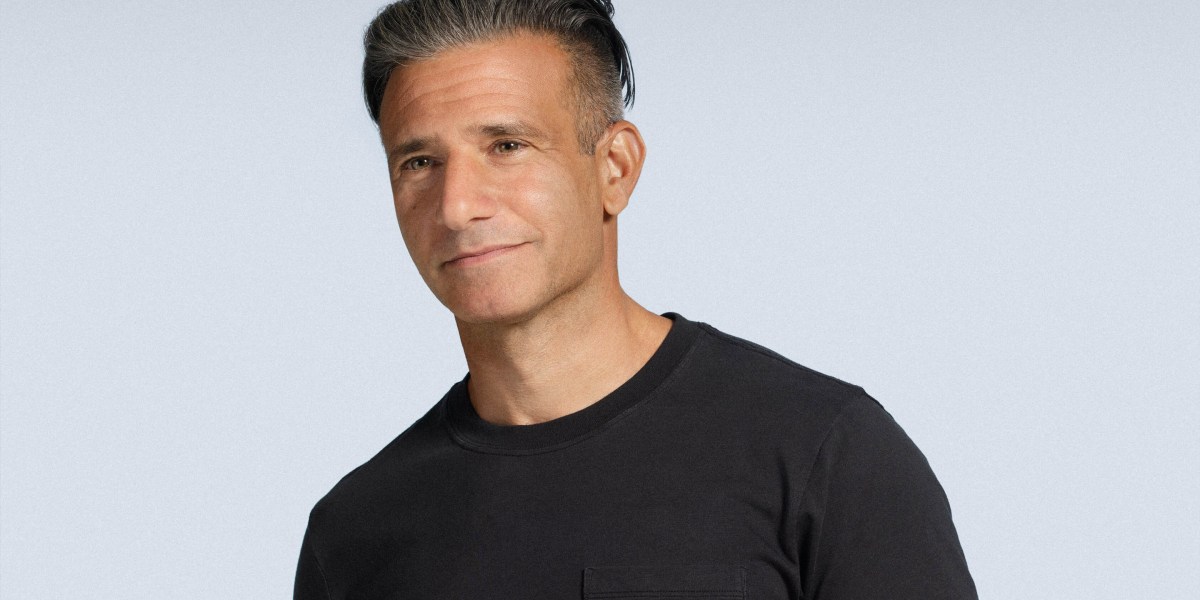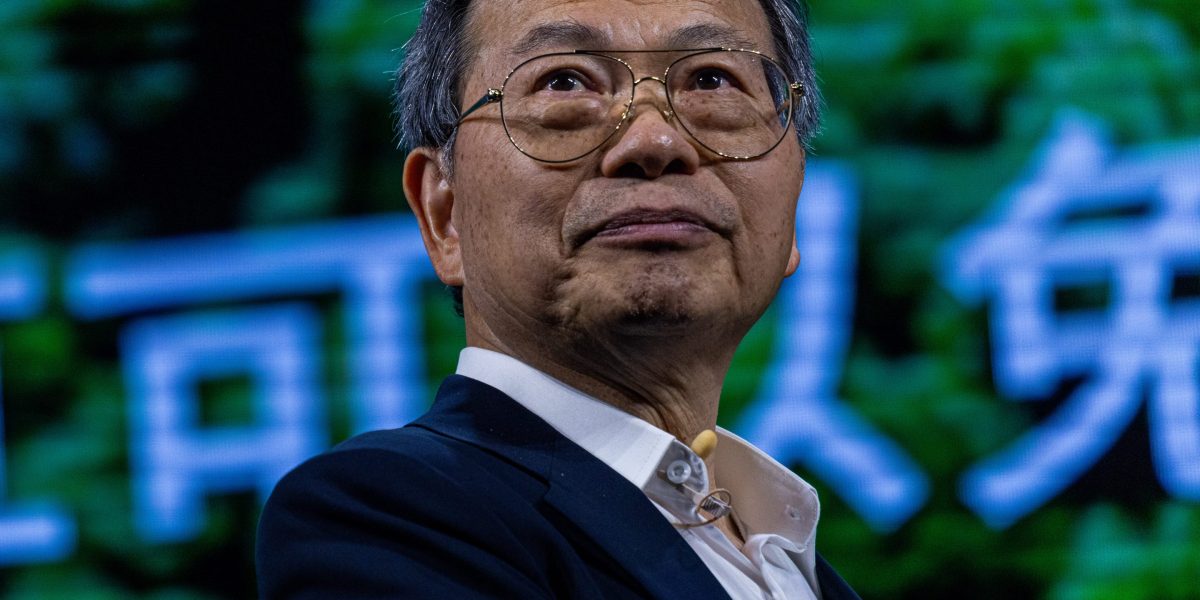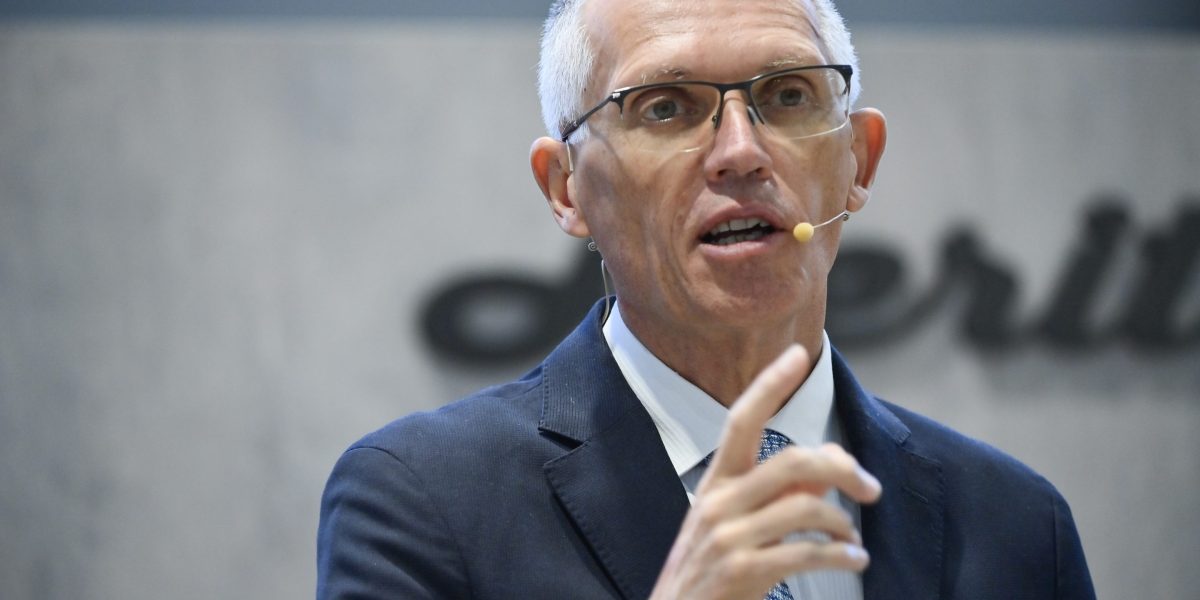
Josh Wolfe backs startups that make tech straight out of our favorite science fiction movies, from Star Wars surgical robots to metal detectors that evoke Total Recall. But there’s one startup he’s especially proud of because it “seemed the craziest at the time.” The company is inspired by X-Men.
“We had this crazy idea a few years ago, and we talked to a lot of people,” said Wolfe, Lux Capital cofounder and managing partner. “Usually when we have these ideas, some people will say one of two things: ‘That’s absolutely brilliant, I’m in’ or ‘That’s the stupidest idea I’ve ever heard.’ Both are extremely validating for us. We decided to start a company where none existed, to go out and find outlier people with outlier traits in the outlier world.”
That company became Variant Bio, cofounded (with critical involvement from Lux) in 2018 by scientists Kaja Wasik and Stephane Castel. In its way, Variant Bio lives up to the promise of X-Men: The company develops therapies by studying the genes of medically pertinent outliers. To date, Variant has raised about $130 million from big names like SoftBank Vision Fund and General Catalyst—and of course, Lux.
Since its inception in 2000, Lux has helped start from scratch more than 20 companies, and now the firm is formalizing that process. Lux Capital recently launched Lux Labs, a platform and strategy devoted to helping scientific ideas move from labs into real-world settings. Variant Bio is considered a Lux Labs company.
“It’s rooted in philosophy and the penchant we have for this,” said Wolfe. “There’s also this perfect storm of what’s going on in the market now that I think this is an advantaged investment strategy.”
Venture is in a pullback, Wolfe says, making this the ideal time to pursue a differentiated approach. Lux Labs will offer hands-on support, like IP rights, company formation, board member recruitment, and building networks.
“Sometimes it starts with a thesis,” said Wolfe. “Sometimes it starts with a specific breakthrough. Sometimes it starts with a breakthrough scientist, an individual. We’ll find a team and actually convince them that they should spin out.”
Some companies in Lux’s portfolios that are considered Lux Labs include autonomous vehicle sensor maker Aeva, ocular disease-focused Kala Therapeutics, scent digitizing startup Osmo, and nuclear waste cleanup startup Kurion. Kurion—acquired in 2016 by Veolia for $350 million—played a key role in the aftermath of the 2011 Fukushima disaster in Japan. Today Wolfe describes Kurion as both a “great financial success” and a “great moral success.” But it wasn’t obvious at the time.
“We looked at nuclear, and we looked at every part of the fuel cycle,” said Wolfe. “We tried to find companies. At the time, virtually no startups existed.”
Wolfe invests in deep tech, but it seems important to him to have a wide cultural view of the world. Throughout our conversation, he references The Curious Incident of the Dog in the Night-Time, science fiction novelist Ted Chiang, and in quick succession quotes Linus Pauling and Charlie Munger. Wolfe tells me over the phone that he has a “wall of nostalgia” in his office, with memorabilia from G.I. Joe, Star Wars, and Thundercats.
There are a lot of reasons to get into tech, but the science fiction origin story is especially compelling to me. Because the line between fiction and reality has always been thin. Wolfe wants to back companies doing what seems impossible. And if something seems impossible, that means there isn’t a pre-existing road to success. But maybe on this one, it’s worth trusting Doc Brown from Back to the Future.
“Roads? Where we’re going, we don’t need roads.”
See you Monday,
Allie Garfinkle
Twitter: @agarfinks
Email: alexandra.garfinkle@fortune.com
Submit a deal for the Term Sheet newsletter here.
Nina Ajemian curated the deals section of today’s newsletter. Subscribe here.
VENTURE DEALS
– Evommune, a Palo Alto-based chronic inflammatory diseases treatment developer, raised $115 million in Series C funding. RA Capital Management and Sectoral Asset Management led the round and were joined by B Capital, Marshall Wace, Avego Bioscience Capital, existing investors Pivotal bioVenture Partners, EQT Life Sciences, Andera Partners, and others.
– LuxWall, a Ypsilanti, Mich.-based glass-based transparent insulation solutions developer, raised $51 million in Series B funding. Climate Investment and Barclays Sustainable Impact Capital led the round and was joined by Carbon Equity, The Nature Conservancy, and existing investors Breakthrough Energy Ventures, Prelude Ventures, 2150, Khosla Ventures, and Baruch Future Ventures.
– Flower, a Stockholm-based energy system technology developer, raised €45 million ($48.9 million) in Series A funding. Northzone led the round and was joined by Giant Ventures, 82an Invest, Sony Innovation Fund, and angel investors.
– Decart, a San Francisco-based AI efficiency research lab, raised $21 million in seed funding. Sequoia Capital led the round and was joined by existing investor Zeev Ventures.
– Buddy.ai, a Mountain View, Calif.-based conversational AI tutor, raised $11 million in seed funding. BITKRAFT Ventures led the round and was joined by Educapital.
– Tola, a San Francisco-based accounts payable, accounts receivable, and cash flow management platform, raised $10.2 million in seed funding. Sequoia Capital led the round and was joined by Cherry Ventures, Creandum, RTP Global, and others.
– Marqii, a New York City-based hospitality digital operations platform, raised $10 million in funding. Next Coast Ventures led the round and was joined by Rich Products Ventures.
– MealMe, a San Francisco-based food ordering API, raised $8 million in Series A funding. Mercury Fund led the round and was joined by existing investors Palm Drive Capital and Gaingels.
– Verax AI, a Dallas-based AI production control software developer, raised $7.6 million in seed funding. TQ Ventures led the round and was joined by Concept Ventures, Cardumen Capital, Seedcamp, and others.
– Endeavor, a San Francisco-based AI platform for manufacturing firms, raised $7 million in seed funding. Craft Ventures led the round and was joined by Heartland Ventures, Contrary Capital, BoxGroup, and others.
– IDA Sports, a Houston-based women’s high-performance footwear brand, raised $2 million in seed funding. Kynisca led the round and was joined by Elysian Park Ventures, Firebird Ventures, and Tipt Ventures.
PRIVATE EQUITY
– Ardian acquired Ion Beam Services, a Peynier, France-based semiconductor equipment and services provider. Financial terms were not disclosed.
– Gridiron Capital acquired a majority stake in Health Monitor Network, a Montvale, N.J.-based health care marketing platform. Financial terms were not disclosed.
– Montel, backed by The Riverside Company, agreed to acquire SKM Market Predictor, a Trondheim, Norway-based analysis and advisory services provider for the power and renewables sectors. Financial terms were not disclosed.
– Red Iron Group acquired a majority stake in EverLine Coatings and Services, a Houston-based painting, pavement maintenance, and other facility services provider. Financial terms were not disclosed.
– Sequoia Financial Group, backed by FGA Partners, Kudu Investment Management, and Valeas Capital Partners, acquired Family Asset Management, a Charleston, S.C.-based investment advisory firm. Financial terms were not disclosed.
EXITS
– EQT Group acquired PageUp Group, a Melbourne, Australia-based talent management platform, from Battery Ventures. Financial terms were not disclosed.
OTHER
– Samba TV acquired Semasio, a Chicago-based contextual targeting and audience data solutions provider. Financial terms were not disclosed.
PEOPLE
– Equal Opportunity Ventures, a Boston-based venture capital firm, added Michelle Rhee as a partner. Previously, she was at BuildWithin.
– HCI Equity Partners, a Washington D.C.-based private equity firm, promoted Nate Novak to managing director and Michael Allen to vice president.





